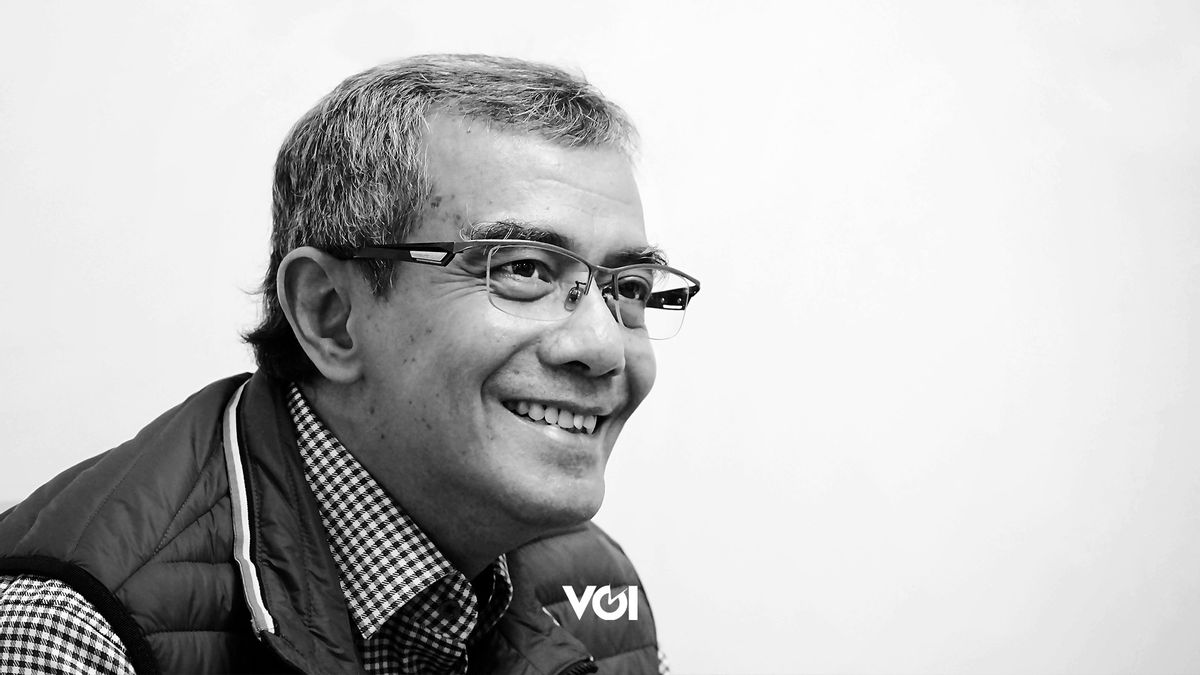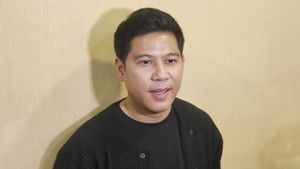The condition of the Indonesian textile and garment industry is not good. This was stated by the Executive Director of the Indonesian Textile Association (API), Danang Girindrawardana. The efficiency measures taken three years ago can no longer be implemented. In the last three years, almost 200,000 employees have been laid off.
***
The government, people's representatives, and stakeholders should be aware of this reality, so that they can jointly find a solution so that the domestic textile and garment industry can be helped to recover. "This layoff situation is out of control. In the last three years, the number of employees who have been laid off has almost reached 200,000, and in just the last month, almost 30,000 people have been laid off," said Danang.
According to Danang Girindrawardana, there are several things that have put the domestic textile and garment industry in a difficult position. First, because of the tight competition between textile producing countries. In this context, the Indonesian textile industry is losing out to China, Bangladesh, and Vietnam. Second, the influx of textile products from abroad is so rapid, both new goods and used clothing, aka thrifting.
And third, the government's half-hearted attitude in helping and protecting the domestic textile industry. "I see that the state is still half-hearted in protecting domestic textile industry players. There are efforts, but the realization is not optimal. In the end, the results are also not good. Illegal importers are not dealt with firmly,” he said.
Although the condition of the textile industry has been so depressed, there is still hope. He has high hopes for the Prabowo government, which will soon continue its administration. According to him, Prabowo must be able to learn from what the Jokowi government has done to labor-intensive and creative industries such as textiles and garments. After all, it is these labor-intensive industries that can absorb the labor problem and demographic bonus.
“This is a challenge for Mr. Prabowo to prove his campaign promise. He must focus on three important industries, although the others cannot be left behind, namely labor-intensive industries, creative industries, and food security industries,” he told Edy Suherli, Bambang Eros, Irfan Meidianto, and Dandi Januar when visiting the VOI office in Tanah Abang, Central Jakarta, recently. Here is the full excerpt.

The Indonesian textile industry is facing serious challenges, many factories have closed and employees have been laid off, what is the current condition?
What is interesting to the public is the large number of textile factory employees who have been laid off. This layoff situation is out of control. In the last three years, the number of employees who have been laid off has almost reached 200,000, and in just the last month, almost 30,000 people have been laid off. The reason for this layoff is because many factories have closed. Three years ago, factories were still able to be efficient, but now that is no longer possible. In the last two years, 22 textile factories have closed.
How much national textile production has there been in the last two years?
For concrete production figures, we cannot say for sure, but the current machine utilization in the factories that still exist is only around 50-60 percent. So, our production is only half of maximum capacity. With the emergence of new textile machines, old machines become inefficient, because the electricity costs are the same, but the production of new machines is greater. Finally, the old, inefficient machines were put aside for now, hoping that one day the industry could recover and the machines could be reused.
How many entrepreneurs are currently members of API?
There are around 600 entrepreneurs who are members of API. Of that number, 200-250 are large-scale textile entrepreneurs. In the textile sector, there are also quite a lot of small and medium-sized businesses. However, don't imagine that small and medium-sized textile businesses are like grocery stores; they have 100-200 machines.
If we map it out, where are the centers of the textile industry?
There are four large areas that are the centers of our textile industry, namely Banten; West Java, in Bandung and its surroundings; Central Java and DIY, in Solo, Yogyakarta, Boyolali, and Semarang; and East Java, around Surabaya and Sidoarjo. There is a push to move these textile factories to bonded zones, so that the supply flow is easier and waste management can be more controlled.
Indonesia has to face China, Vietnam, and Bangladesh. What are the advantages of these countries in the textile sector compared to Indonesia?
China is the largest producer, followed by Bangladesh. In the Southeast Asian region, we are below Vietnam. Many factories that produce famous branded clothes are in Indonesia, Vietnam, and Bangladesh. So, we compete with those countries. In those countries, labor issues rarely cause unrest. In Indonesia, unrest is very easy to occur. In China, moreover, there are no labor demonstrations. The government there is able to accommodate the needs of workers before they move.
Especially for Vietnam, we must admit, they have not only left Indonesia behind in labor-intensive industries such as garments and textiles, but also in advanced industries such as automotive. They are progressing rapidly. One factor is labor management which is much more prepared than ours. Bangladesh has the advantage in terms of distance from European countries, so they are more competitive. Our advantage lies in quality, which is why international brands are still producing in Indonesia. Currently, there is a question about political stability, but we do not know yet whether this will have an impact. We must be careful to maintain stability so that it does not affect the textile industry.
Why is this issue of stability important?
Entrepreneurs who want to invest do not want to lose their capital; they want to make a profit. If stability is not maintained, there is no guarantee that businesses can run smoothly, and they will think twice about investing in Indonesia. In China and Vietnam, the political situation is more stable. Bangladesh has recently experienced turmoil, and this has greatly affected the performance of the industry there. We do not want Indonesia to experience the same thing. If political stability in Indonesia is not maintained, new competitors such as Cambodia and Laos will emerge, while Vietnam, which is already superior, will move further away from us.

In terms of production costs, is Indonesia at a low, medium, or high level compared to its competitors?
We are in a medium position. China can have lower production costs because its manufacturing technology is better. This is because their government is involved. Finally, accusations of dumping from them have emerged, but this is not easy to prove.
What can we do to deal with this situation?
We must modernize our industry. However, the government cannot immediately force entrepreneurs to replace machines because the capital is large, while there is no investment guarantee from the government. If there are no regulations that guarantee investment, the business world will wait. The problem is, our regulations change very quickly, and this is a big problem that must be resolved by the government. The Ministry of Industry and the Ministry of Trade must be in line. When industry increases production, on the other hand the Ministry of Trade opens the import tap. Domestic products end up losing. Our industry loses to China not because we are incapable or our technology is not competitive, but because the government's involvement is not optimal.
Every year our workers push for wage increases, while entrepreneurs hold out. What is the middle way in a situation like this?
In general, entrepreneurs want workers to prosper. If there are entrepreneurs who do not want their employees to prosper, they are individuals. This is because modern management directs entrepreneurs to improve employee welfare so that the company remains healthy. The government through the Ministry of Manpower still determines workers' wages through a tripartite compromise: government, entrepreneurs, and workers. During the meeting, what was discussed was always employee welfare, while productivity was forgotten. Indonesian employee productivity is at the lowest position in Southeast Asia. In this situation, the government must be fair so that everyone's interests are accommodated.
The government must have a road map for 5 years so that the business world can run well. This must be agreed upon by entrepreneurs and workers. So, there is no debate every year. If this is agreed upon, the business sector can run smoothly because there is no turmoil.
There are two types of imported textiles: new ones at low prices, and the second is used goods or thrifting. What do you think about these two things?
In my opinion, thrifting is an accident. Only lower-class countries import used clothes and allow their people to use them. Indonesia falls into this category. This happened because the government opened the tap for importing used clothes. When the government allows it, thrifting seems to become a new culture for a group of people. Finally, this is allowed, even though it should be embarrassing.
Isn't there a ban on importing used goods including underwear in the Minister of Trade Regulation Number 25 of 2022 concerning Amendments to the Minister of Trade Regulation Number 20 of 2021 concerning Import Policies and Regulations?
That's what we want to underline. The rules are there, but there is no enforcement. The proof is, thrifting goods enter easily. There are smugglers, then customs officers, and where are law enforcement? Why is the import ban allowed? This means that the government is allowing it even though there are already regulations prohibiting it. The cure is none other than law enforcement.
For new goods, some enter legally and some enter illegally. Again, the cure is law enforcement. Regulation and enforcement must be parallel so that the purpose of making regulations can be achieved.
So, the state has not really protected the domestic textile industry?
I see the state is still half-hearted in protecting domestic industry players. There are efforts, but the realization is not optimal. In the end, the results are also not good. We in the industrial world are half-dead. Illegal importers, illegal cigarettes, illegal electronics, illegal garments are not prosecuted. Prevention of illegal importers exists, but it is only ceremonial. No illegal importers are punished.
Are MSMEs also affected by this textile problem?
Yes, MSMEs used to dominate the Tanah Abang market and other markets with hijab, gamis, clothes, and other products. Now, their shops are filled with imported products. Local products are outdated. Do the authorities know about the large number of imported products? I'm sure they do. But, again, there is neglect. This is what makes our MSMEs slump. Just look at the textile MSME centers in Majalaya, Tasikmalaya, and others. Their workers have changed professions, working in other sectors such as motorbike repair, online motorcycle taxis, and so on.
The government says that labor absorption is high, where does the data come from?
The government uses data from the ILO (International Labor Organization), where the definition of labor is those who work at least one hour per week. This is the data used by the government. In fact, if you only work one hour a week, what do you do the rest? You're unemployed, right? So, we are not right to use data like this.
In the midst of this situation, do our textile industry friends still care about environmental preservation?
For the large industry category, they care. They already have liquid waste processing facilities. The majority of API members are already in the green category. The problem is, if they don't have these facilities, they can't sell their products to Europe. But for MSMEs, I don't have the data. However, their scale is also not large.
What are the prospects for environmentally friendly textiles, can it become a future trend?
The ecoprint technique has indeed developed using natural dyes, such as leaves, branches, and others. However, the problem is that it cannot be mass produced and cannot compete with the chemical-based textile industry. This is actually an opportunity, because developed countries cannot do it, so this is an opportunity for Indonesia to maximize this potential. Creative people must be able to capture the existing market. The comparison is like hand-drawn batik and printed batik, hand-drawn batik is clearly more expensive because the process and workmanship are different.
What are API friends' hopes for the Prabowo government?
So far, people have seen his military background, so the military industry has received more attention. In the future, hopefully labor-intensive industries and creative industries can receive attention. Both can go hand in hand, because this industry can overcome employment problems and demographic bonuses. Moreover, the education level of our workforce is still dominated by junior high school graduates and below. This workforce can only be absorbed by labor-intensive industries and creative industries. Don't just pay attention to capital-intensive industries. Remember, layoffs in various sectors are a scourge everywhere. The collapse of our labor-intensive industry recently is not only the fault of entrepreneurs. We want the government to learn from this so that in the future it can be better.
We also ask the government to pay attention to the food security sector, because this can also absorb a lot of labor. In the food security index, we are in 69th position out of 122 countries. In the last two years, the rate of layoffs in Indonesia is the highest in Southeast Asia. This is a challenge for Mr. Prabowo to prove his campaign promises. Focus on three important industries, although others should not be left behind, namely: labor-intensive industries, creative industries, and food security industries. This is the dignity and honor of our nation.
Culinary Compromise a la Danang Girindrawardana

Due to the different tastes between Danang Girindrawardana and his wife and children, there are two menus in his house. (Photo: Bambang Eros, DI: Raga Granada VOI)
In culinary matters, Danang Girindrawardana is very different from his wife. He likes simple food, while his wife likes something rich in flavor and tends to be experimental in culinary matters. His two children follow their mother's taste in food matters. So he is a minority in food matters at home.
According to Danang, he is conservative in culinary matters. "I am not too enthusiastic about dishes that are rich in spices and rich in flavor," said this lover of chicken satay and fried gourami.
For spicy and full-taste dishes, it's not that he can't, but he can't enjoy them very much. "I don't really like spicy food with lots of spices. For me, food is natural and just what it is. If there are spices, don't use too many," explained the former Chairman of the Indonesian Ombudsman.
For Danang, the spices are just enough so that the authenticity of the food is not lost. "Just a little soy sauce and salt. I don't like chili sauce or tomato sauce. Even what many children like today is mayonnaise," he added.
Because he is minimalist in terms of seasoning, Danang is satisfied with a dish of plain bread plus butter, that's enough, eggs are simply boiled. "This is what my wife often complains about, she likes food that is rich in flavor. And she is very experimental in terms of food, while I am the opposite. My children follow their mother's style in terms of food," said the former Executive Director of the Indonesian Employers Association (Apindo).
The middle ground taken was to make two different dishes. One food with minimalist seasoning and another part that is rich in flavor. "Yes, our tastes are indeed different. I can't enjoy what my wife and children like. So there are two menus at home," said Danang, who has reduced sugar intake and increased vegetable intake.
Exercise at Home Only

Outside of his busy schedule as a professional and managing an organization, Danang Girindrawardana has a hobby of drawing. "I like the world of art. I like interiors, drawing manually or with a computer," said the alumni of the Faculty of Social Politics UGM Yogyakarta (S1) and STIA LAN Jakarta (S2).
Meanwhile, the efforts he makes to maintain his health are by exercising. "I choose light exercise that can be done at home, no need to go to the gym. Just regular push-ups, lifting a little weight, and also swimming because we happen to have a swimming pool at home," said Danang, who is not interested in trendy sports such as cycling or those that are widely practiced such as running.
Talking about swimming, he admits that he is inferior to his wife. "Frankly, when it comes to swimming, my wife does it more often, I only do it occasionally. Sometimes we chat more or eat snacks by the pool, hehehe," admitted Danang, who swims with his children and wife.
Time for Family

Even though he is busy with various activities, Danang never lacks attention to his family. "As much as possible, he makes time for his family, like on weekends. I am still sad now, my eldest child has just left for Utrecht, the Netherlands, to continue his studies," he said.
Meanwhile, the youngest has also moved to a boarding house near his campus; Universitas Indonesia. "He has also just started college at UI, he lives in a boarding house not far from his campus. So it's just the two of us at home, accompanied by the ART and driver," continued Danang, who lives in the Cibubur area.
Even though he is separated from his children, Danang takes advantage of the increasingly sophisticated communication technology now. "The distance may be far but communication is still done by telephone or video calls. You can also have zoom meetings with the children," he said.
To young people, he advised them to also learn things that are not taught on campus. "There are many things that are not taught on campus. This must also be learned autodidactically, such as how to manage finances. The problem is, Indonesian children tend to be comfortable living off their parents' subsidies. "This is different from abroad, where they are already independent since graduating from high school. The orientation must also be changed, after graduating it is not where to work, but what to do or what kind of business," he said.
Therefore, Danang Girindrawardana continued, children before they become independent must be equipped with adequate knowledge so that they are ready to be independent, not forever dependent on parental subsidies. "The research we conducted shows that 95% of high school or undergraduate graduates want to work, not create jobs. We must change this mindset, starting now," he said.
"Thrifting is an accident in my opinion. Only lower class countries import used clothes and allow their people to use them. Indonesia falls into this category. This happened because the government opened the tap for importing used clothes. When it was allowed by order, thrifting seemed to become a new culture for a group of people. Finally it was allowed, this should be embarrassing,"
The English, Chinese, Japanese, Arabic, and French versions are automatically generated by the AI. So there may still be inaccuracies in translating, please always see Indonesian as our main language. (system supported by DigitalSiber.id)













